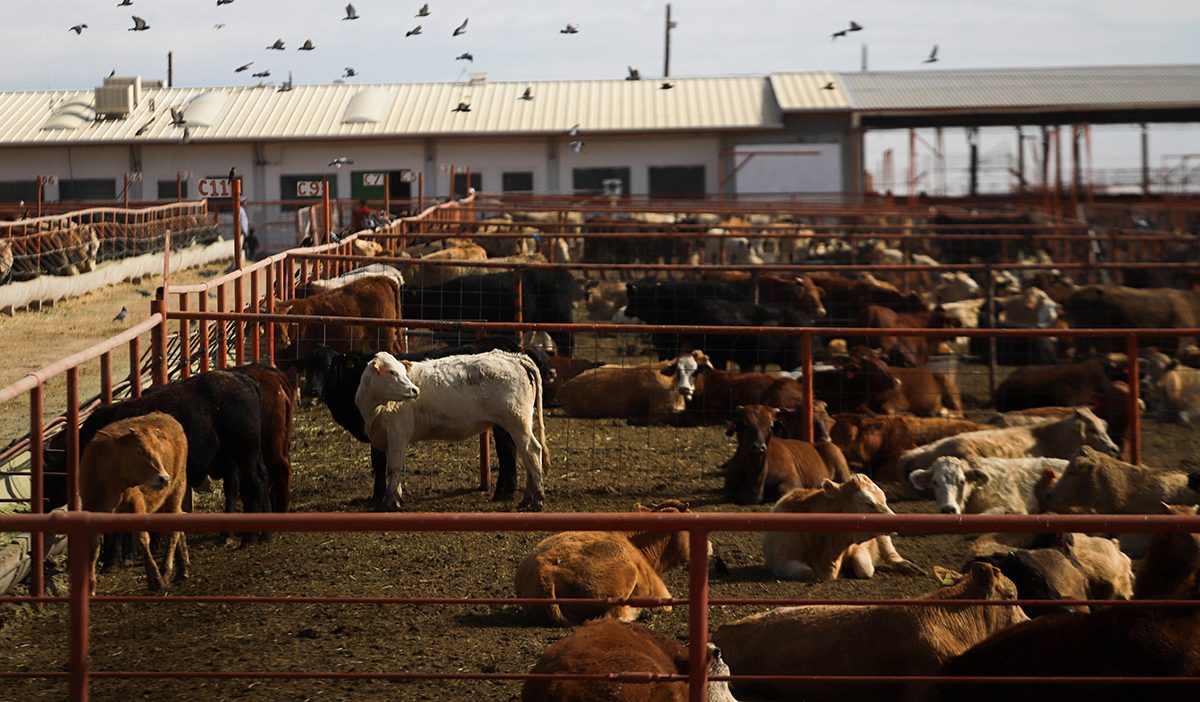Human screwworm: US reports first travel-associated case of flesh-eating parasite
The US Department of Health and Human Services (HHS) has reported their first human case of travel-associated New World screwworm.
The screwworm is a flesh-eating parasite that arrived in the US from an outbreak-affected country.
They are parasitic flies whose females lay eggs in wounds on any warm-blooded animal.

Once the eggs hatch, hundreds of screwworm larvae use their sharp mouths to burrow through living flesh, eventually killing their host if left untreated.
The maggots’ feeding is similar to a screw being driven into wood, giving the pests their name.
The case was investigated by the Maryland Department of Health and the US Centres for Disease Control and Prevention (CDC).
According to HHS spokesman Andrew G. Nixon, it was confirmed by the CDC as New World screwworm on August 4 and involved a patient who returned from travel to El Salvador.
Last week, Reuters reported that beef industry sources said that the CDC had confirmed a case of New World screwworm in a person in Maryland who had travelled to the US from Guatemala.
The HHS spokesman did not address the discrepancy on the source of the human case.
He confirmed: ‘The risk to public health in the United States from this introduction is very low.’
The US government has not confirmed any cases in animals this year.
The different accounts from the US government and industry sources on the human case are likely to further rattle an industry of cattle ranchers, beef producers and livestock traders.
They are already on high alert for potential US infestations as screwworm has moved northward from Central America and southern Mexico.

The confirmation of a screwworm case comes just over a week after US Department of Agriculture Secretary Brooke Rollins travelled to Texas to announce plans to build a sterile fly facility there as part of efforts to combat the pest.
They have estimated that a screwworm outbreak could cost the economy in Texas, the biggest US cattle-producing state, about $1.8billion in livestock deaths, labour costs and medication expenses.
Screwworms can be devastating in cattle and wildlife and rarely infest humans.
However, an infestation in either an animal or a person can be fatal.
Treatment can be a heavy burden and involves removing hundreds of larvae and thoroughly disinfecting wounds, but infestations are typically survivable if treated early enough.
According to RTE, an executive of the industry group Beef Alliance sent emails last week to about two dozen people in the livestock and beef sectors, informing them that the CDC had confirmed a human case of screwworm in Maryland.
The anonymous source said that the email stated the case was from a person who had travelled to the US from Guatemala.
Beth Thompson, South Dakota’s state veterinarian, said that she was notified of a human case in Maryland within the last week by a person with direct knowledge of it.
She added that the CDC deferred questions to Maryland on a call with state animal health officials.
She said: ‘We found out via other routes and then had to go to CDC to tell us what was going on.
‘They weren’t forthcoming at all. They turned it back over to the state to confirm anything that had happened or what had been found in this traveller.’
The emails from the Beef Alliance executive said that due to patient privacy laws, there were no other details available about the positive human case of screwworm.
It added that the person was treated and prevention measures were implemented in the state.
The beef industry executive wrote: ‘We remain hopeful that, since awareness is currently limited to industry representatives and state veterinarians, the likelihood of a positive case being leaked is low, minimising market impact.’
Screwworms were eradicated from the US in the 1960s when researchers began releasing massive numbers of sterilised male screwworm flies that mate with wild female screwworms to produce infertile eggs.
Post a Comment for "Human screwworm: US reports first travel-associated case of flesh-eating parasite"